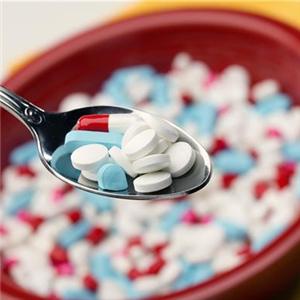Incarcerated Louisiana Youth Overmedicated into Submission, Investigation Finds
 Strong antipsychotic medications are being prescribed to incarcerated juveniles across Louisiana despite lacking diagnoses for the conditions they were designed to treat, according to an investigative report by New Orlean’s The Lens.
Strong antipsychotic medications are being prescribed to incarcerated juveniles across Louisiana despite lacking diagnoses for the conditions they were designed to treat, according to an investigative report by New Orlean’s The Lens.
The medications are meant to help with bipolar disorder and schizophrenia. After examining their records, The Lens found 22 percent of medications prescribed in eight Louisiana facilities were designed to treat bipolar disorder. But, only five percent of diagnoses were of bipolar, the investigative news site found. No diagnoses of schizophrenia were made.
The most common diagnosis (found in 20 percent of incarcerated juveniles) was “conduct disorder. ” Symptoms of this disorder include defiant, impulsive behavior, drug use and criminal activity.
“There are some youth who should receive medications who aren’t,” Will Harrell, a federal monitor of juvenile justice systems, told The Lens. “But there’s also kids who are being medically restrained. Sometimes it’s easier to deal with disruptive kids by drugging them, than doing anything else.”
According to August Collins, director of youth advocacy at the Youth Empowerment Project, the drugs are used to numb the inmate into submission, making it difficult to rehabilitate them.
“We need to set stricter guidelines on prescribing this stuff and quit treating diagnosis of a kid as an assembly line,” Collins told The Lens. “We’ve had kids sleeping in classes like they’re stoned out of their minds. It’s difficult to give these kids insight into who they are if they can’t even stay awake.”
Newsfeed Archives
- November 2024
- October 2022
- June 2022
- May 2022
- February 2022
- January 2022
- December 2021
- November 2021
- August 2021
- July 2021
- May 2021
- April 2021
- February 2021
- January 2021
- December 2020
- October 2020
- August 2019
- August 2018
- May 2016
- September 2014
- April 2014
- December 2013
- April 2013
- August 2011
- July 2011
elsewhere
- An interview with Karlan Sick, Board President
- BOOKS CAN HELP INCARCERATED TEENS SUCCEED
- Books Through Bars
- Distribution to Underserved Communities Library Program
- Juvenile Justice Information Exchange
- Life Lessons Through Literacy for Incarcerated Teens
- Passages Academy Libraries
- Passages Academy Schools
- Read This
- What's Good in the Library?
- Women and Prison




